Singapore under highest terror threat in recent years: 8 key points from MHA's terror report
Sign up now: Get ST's newsletters delivered to your inbox
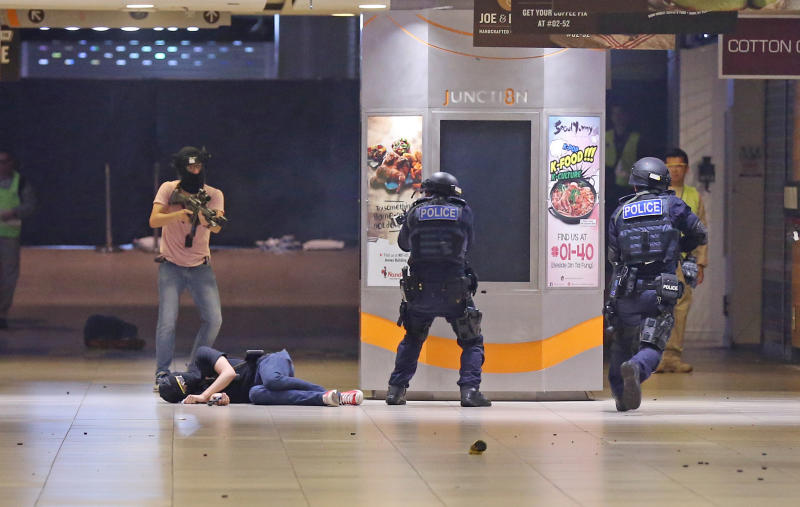
A counter-terrorism exercise at Bishan's Junction 8 Mall on Oct 17, 2016. ISIS remains the most significant threat to Singapore, and has targeted it, MHA said in its terrorism threat report released on Thursday (June 1).
ST PHOTO: SEAH KWANG PENG
Lydia Lam
Follow topic:
SINGAPORE - Singapore was specifically targeted by terrorist groups in the past year and the terrorism threat to the country remains the highest in recent years, the Ministry of Home Affairs said in its Singapore Terrorism Threat Assessment Report 2017, released on Thursday (June 1).
Here are eight key takeaways from MHA's report.
1. ISIS is the biggest terror threat to Singapore in recent years
ISIS, or the Islamic State in Iraq and Syria, has posed the most significant threat to Singapore for the last few years, even though threats from groups like Al Qaeda (AQ) and the Jemaah Islamiah (JI) remain.
ISIS has already plotted to carry out two attacks against Singapore that the authorities are aware of.
Last year, there was reliable information that foreign ISIS militants were considering carrying out an attack in Singapore in the first half of 2016. The Singapore authorities acted swiftly but discreetly to mitigate the threat.
In August last year, the Indonesian authorities foiled a plot by a Batam-based terrorist group called Katibah Gonggong Rebus, acting on the instructions of Bahrun Naim, an Indonesian ISIS militant based in Syria.

They had planned to launch a rocket attack against the Marina Bay Sands (MBS) integrated resort, and considered using a hill or an outer island of Batam as a launch point, but were arrested by Indonesian authorities before they could do so.
2. Singapore is a key target of terrorist groups

Singapore has taken part in international coalitions against terrorism, and represents many things that ISIS is against - Singapore is a secular democracy, host to many economic and commercial interests belonging to Western nations that ISIS considers "infidels".
Singapore has been cited as a target in jihadist publications and videos, by both ISIS and other groups.
One Arabic publication titled The Fall Of The Idol: External Action And Individual Jihad, circulated online around October last year, named two entities in Singapore as potential targets in the wider bid to bring down the United States and Western interests by attacking the international economy. Following the publication, the security agencies have worked with these entities to enhance their security measures.
An ISIS publication released in September 2015 also named Singapore (among other countries) as a member of the "crusader coalition" which ISIS was fighting against. A May 2016 ISIS video named Singapore, Malaysia, Indonesia, Thailand and the Philippines as countries infiltrated by "disbelievers" and threatened action against the "tyrants" of these countries.
3. Threat from home-grown, self-radicalised lone actors in Singapore
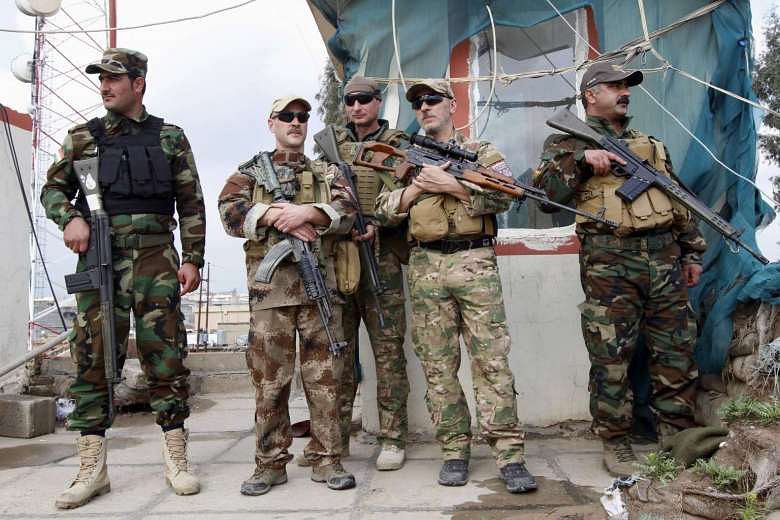
Like other countries, Singapore faces the risk of an attack by individuals who are radicalised by the propaganda of ISIS and seek to heed the call of the group to carry out attacks where they live.
Two Singaporeans have gone to Syria to join in the conflict with their respective families. There is also a significant rise in the number of radicalised Singaporeans detained under the Internal Security Act (ISA).
Between 2007 and 2014, 11 radicalised Singaporeans were dealt with under the ISA. In contrast, since 2015, there have already been 14 Singaporeans who were radicalised by ISIS who had to be dealt with under the ISA.
Among the recently detained Singaporeans, two of them said that they were prepared to carry out attacks in Singapore on behalf of ISIS.
One of them said he wanted to assassinate the President and Prime Minister of Singapore so that the country would become leaderless and could be turned into an Islamic state under the "ISIS caliphate".
If he was unable to carry out these plans, he planned instead to carry out attacks in public places in order to strike fear within our society, using easily available weapons such as knives.
Although there have previously been self-radicalising individuals in Singapore, ISIS' influence is well beyond what other terrorist groups, including AQ and JI, have ever been able to muster, MHA said.
4. The threat from radicalised foreigners living in Singapore
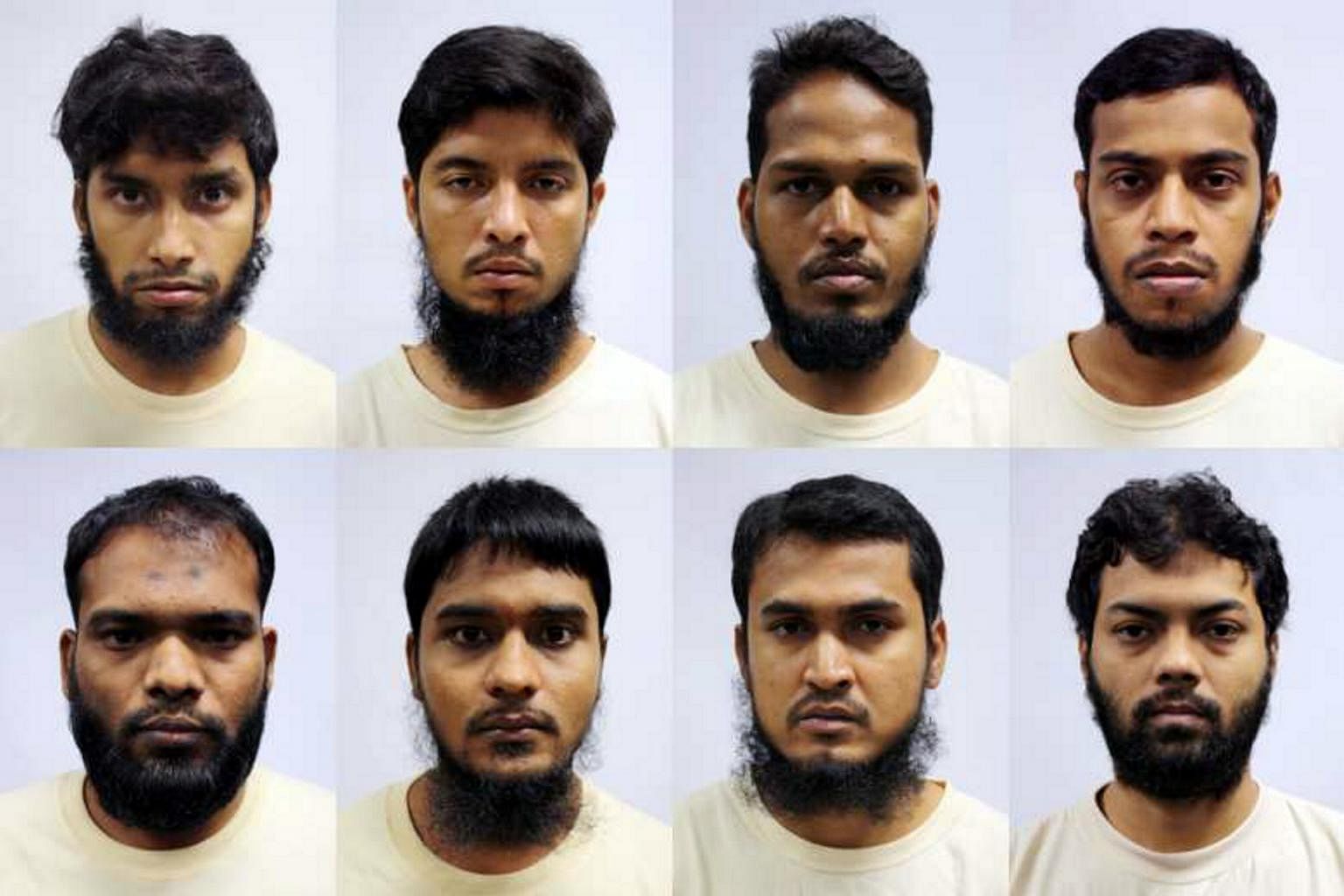
There was a significant increase in the number of radicalised Singaporeans and foreigners in Singapore since 2015.
Since late 2015, some 40 Bangladeshi nationals in Singapore were found to have been radicalised, supporting the use of violence to pursue their extremist ideology.
Several of them were planning to carry out armed violence against the government in Bangladesh.
Although there was no indication that they planned to carry out attacks in Singapore, one of those arrested - the leader of the group calling itself Islamic State In Bangladesh - admitted that he would carry out attacks anywhere if directed by ISIS.
All the Bangladeshi nationals have since been repatriated to Bangladesh except for six who are currently serving sentences in Singapore for terrorism financing offences.
Since 2015, eight Indonesian domestic helpers in Singapore were also investigated and deported after they were found to be radicalised.
None of them had any plans to carry out acts of violence here at the time they were investigated but their radicalisation and association with terrorists overseas were of security concern.
5. ISIS a significant threat in the region

ISIS has been linked to several attacks across South-east Asia, including the first ISIS-claimed attack in a suicide-bombing-cum-shooting in Jakarta, Indonesia, in January last year (2016), and the grenade attack carried out on a nightspot in Puchong, on the outskirts of Kuala Lumpur, Malaysia, in June last year.
In the Philippines, a group in southern Philippines which calls itself IS EastAsia claims to be the de facto ISIS group in this region.
In January last year, the ISIS leadership in Syria said that the leader of this group, Isnilon Hapilon, was the "overall emir in the Philippines".
In recent times, there are indications that the group is seeking to expand its operations beyond its strongholds in southern Philippines.
The group's recent siege of Marawi City also attests to their potential to turn Mindanao into an ISIS wilayat or province for South-east Asian militants.
If this entity proliferates into a regional network, as the JI had done previously, the terrorism threat will deepen further in South-east Asia.
On top of this, regional militant groups are likely to evolve.
In Indonesia, militants from the pro-ISIS umbrella group Jamaah Anshorut Daulah (JAD) had previously used low explosive devices in attacks in 2016, but have recently begun to assemble homemade bombs using high explosive materials.
JI has also been building up its capabilities by conducting militant training and attempting to acquire weapons.
6. Authorities' response to regional threat
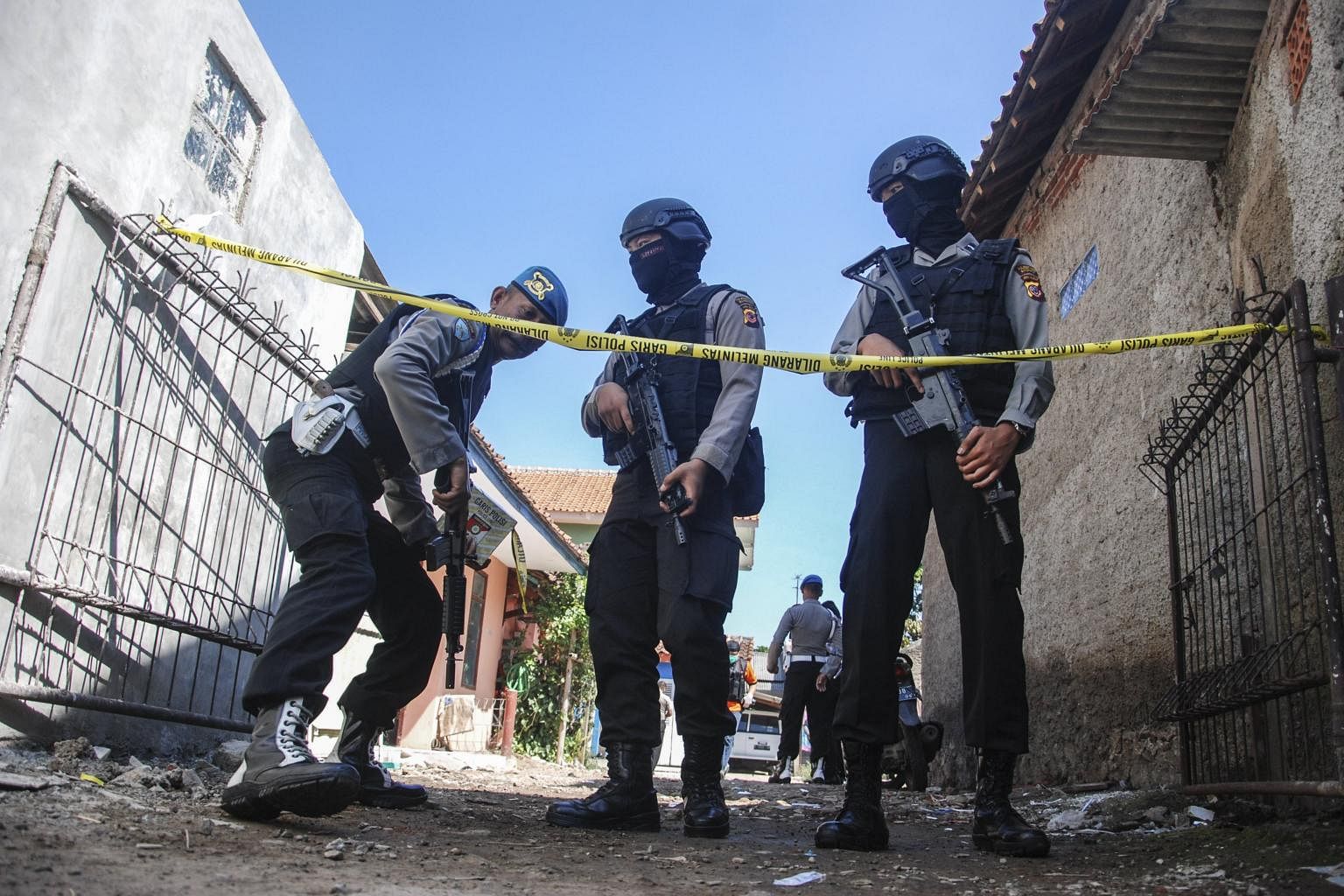
Authorities in the various South-east Asian countries have stepped up counter-terrorism efforts, resulting in more plots uncovered and more militants arrested.
According to media reports, Malaysian authorities disrupted four plots and arrested 85 militants in 2015. In 2016, they disrupted seven plots and arrested 119 militants.
Over in Indonesia, authorities disrupted nine plots and arrested 65 militants in 2015, and disrupted 15 plots and arrested over 150 militants in 2016.
The Indonesian and Philippine authorities have put pressure on pro-ISIS militants in Poso and the southern Philippines, with some key leaders killed or injured. Nevertheless, the threat continues to increase.
7. Prognosis: No credible intelligence of imminent attack on Singapore, but security agencies on high alert
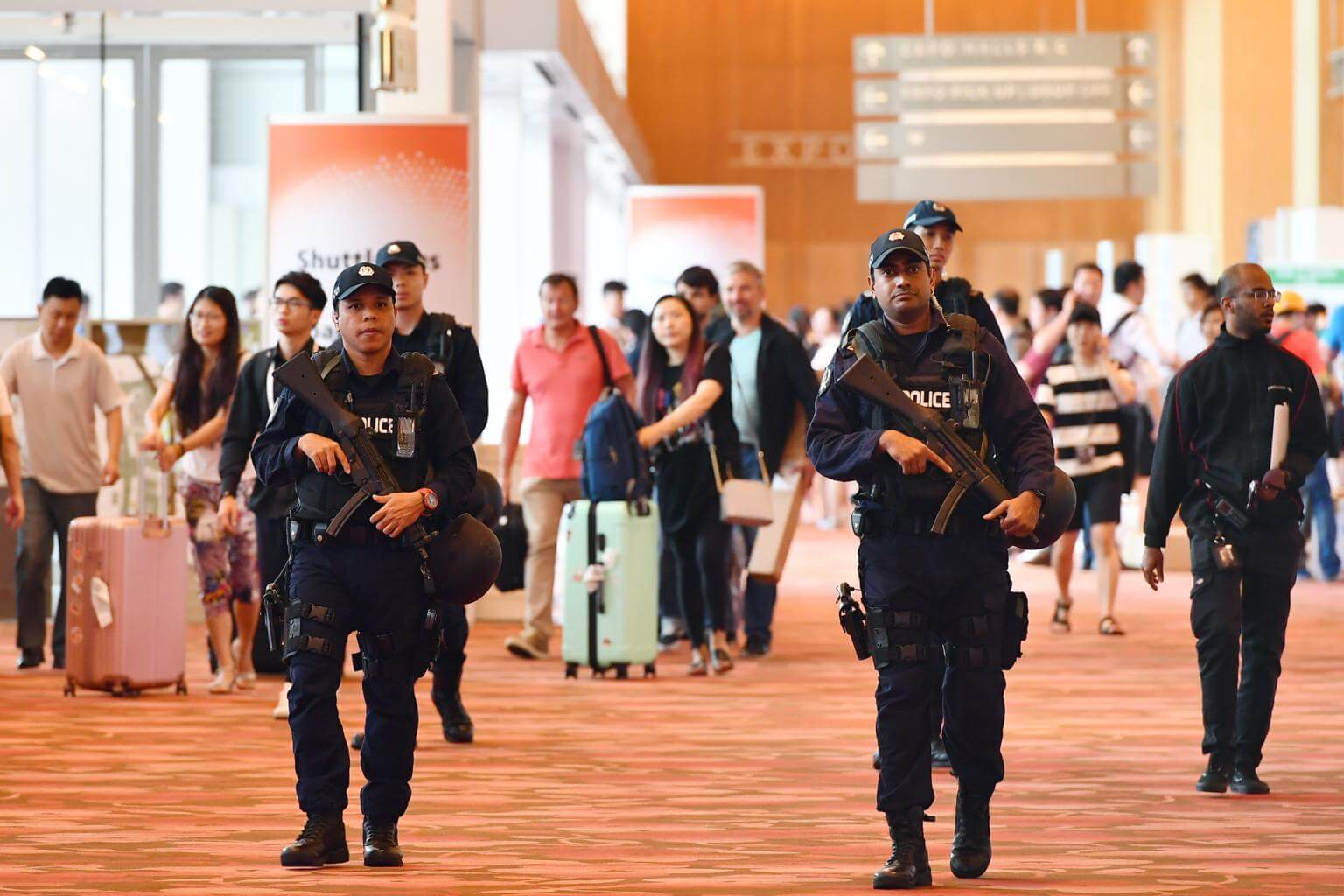
MHA concluded in its report that while there is no credible intelligence of an imminent attack at this point in time, Singapore's security agencies remain on high vigilance.
Radicalised individuals, particularly, are a grave security concern, as they might heed calls by ISIS to carry out lone-wolf attacks.
They can use everyday items as weapons and do not need sophisticated tools - such attacks are hard to prevent and can happen quickly without much warning.
Another concern is an increased flow of returning fighters to South-east Asia as ISIS loses ground in Syria and Iraq. These fighters are likely to be more skilled in attack tactics, more ideologically motivated, and able to access wider terror networks and links formed in Syria and Iraq.
Released terrorist prisoners in the region are also a concern. They may return to terrorism if they have not been de-radicalised. Around 200 terrorist prisoners in the region will be released from prison over the next two years.
8. What can Singaporeans do?

MHA in its report said a strong community response to the terrorist threat is critical given the high likelihood of an attack, and that is why the SGSecure movement was launched in September 2016 to sensitise, train and mobilise the community in the fight against terror.
One way the community can help is in detecting and reporting radicalised individuals. Friends and family are often the first to notice tell-tale behavioural changes and are best-placed to counsel the possibly self-radicalised individuals before they step off the precipice, or to alert the authorities if they are unable to rein in the individuals.
In some of the self-radicalisation cases Singapore has detected previously, there were friends and family members who knowingly withheld information from the authorities. This is usually because they denied there was a problem or because they believed misguidedly that they were protecting their loved ones.
The opposite is true - by alerting the authorities to signs of radicalisation early, friends and family members are in fact helping to save them from harming themselves and those around them.

